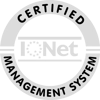In an era where environmental awareness and the fight against climate change are becoming increasingly significant, companies in the logistics sector are challenged to find innovative ways to make their processes more sustainable.
To successfully navigate the transformation toward more sustainable logistics, meaningful approaches are needed, such as integrating eco-friendly technologies, increasing the use of renewable energy, and promoting digital solutions to enhance efficiency. Moreover, close collaboration along the entire supply chain and the development of innovative business models are essential to achieving sustainability goals.
In this comprehensive article, we examine the challenges and opportunities of this transformation and present best practices to help your company make logistics processes both environmentally friendly and efficient. From integrating new technologies to implementing strategic measures to reduce energy consumption—discover how greater sustainability in logistics can become a reality.

Challenges in the Transformation Process Toward Sustainable Logistics
The transition to sustainability-oriented logistics offers numerous advantages, but the journey is accompanied by several challenges. Companies must not only fundamentally rethink existing structures and processes but also overcome complex obstacles. Intransparent supply chains, internal resistance, high investment costs, and compliance with global sustainability standards are just some of the hurdles that need to be addressed.
Intransparent Supply Chains: In a globalized world with increasingly complex and often opaque value chains, achieving complete transparency over upstream supply chains can be difficult. However, a lack of transparency poses significant risks, such as regarding ecological standards, human rights, or working conditions. To ensure this transparency, companies should consider a realignment or at least a partial alignment of their entire supply chain to guarantee that all actors along the chain adhere to the same ecological, social, and ethical standards.
Technological Complexity: The integration of modern and sustainability-promoting technologies such as IoT, Big Data, and AI into existing logistics processes can be complex and costly. Companies must ensure that they have the necessary infrastructure and technical expertise to implement these technologies successfully. Experts and partners like DEUFOL can assist you in making your complex logistics technologies more efficient and, therefore, more sustainable.
Internal Resistance: Changes in corporate structures as well as in operational and work processes can encounter resistance if the benefits of the change are not clearly understood by the affected employees. Therefore, it is crucial to prepare these employees early for the upcoming transformation and actively accompany them throughout the entire process. Supporting measures include training and motivational sessions to promote acceptance of new processes and technologies and ensure their successful implementation. Since change takes time and cannot be implemented overnight, effective change management is crucial for long-term success.
Regulatory Requirements: Compliance with ever-tightening environmental and social regulations and standards often presents a challenge. Companies must ensure that they meet all relevant legal requirements, which often requires extensive adjustments to their processes and practices.
Costs and Investments: In principle, every acquisition involves costs and investments, and this also applies to the long-term investment in sustainability. Experience shows, however, that the transformation costs toward more sustainable logistics are manageable. First, a detailed analysis of your logistics processes is required, which typically incurs only minor costs. The measures identified during this analysis, such as retrofitting costs or replacing energy-inefficient vehicles, equipment, and machinery, may require higher investments. However, intelligent logistics management ensures that these initial investments pay off quickly, making the transformation more cost-effective in the long term than clinging to inefficient structures with high operating costs.
A successful transformation, therefore, requires strategic planning, strong change management, and a willingness to integrate innovative approaches and technologies to remain competitive and future-proof in the long term.
In the next section, we will explore the opportunities and potentials you can realize in terms of your sustainability options.

Opportunities of Increased Sustainability in Logistics
Sustainability in logistics is gaining increasing importance, as companies aim to assume not only economic but also ecological and social responsibility. The logistics industry, which significantly contributes to global CO₂ emissions through its activities, faces the task of rethinking its processes holistically and transforming itself. But why is sustainability in logistics so important, and what opportunities arise from it?
Compliance with Legal Requirements: Many countries are tightening legal frameworks and urging companies to implement environmentally friendly and socially responsible practices. An example is the Supply Chain Due Diligence Act (LkSG), which obliges companies to adhere to ecological and social standards throughout their entire supply chain. Companies that proactively implement sustainable measures are better prepared for such legal changes and avoid potential penalties.
Reduction of CO₂ Emissions: Through targeted optimization of transport routes, the use of low-emission means of transport, and the reduction of empty runs, logistics companies can significantly lower their CO₂ emissions. This contributes substantially to combating climate change and supports global efforts to reduce greenhouse gases.
Promotion of Innovation: A sustainable orientation of logistics activities promotes the use of new technologies and innovative solutions. Companies that invest in sustainable logistics solutions also enhance their capacity for innovation. This is reflected in the development of new products and services, improves existing processes, and can open up new business areas.
Resource Conservation: Sustainable logistics also means conserving resources and using them more efficiently. This includes the reduction, reuse, and increased use of recyclable packaging materials. These measures help reduce packaging waste. In the area of energy consumption, there is great potential for savings through targeted optimization of storage and transport processes. More efficient operations can significantly reduce energy consumption by shortening transport routes, optimizing the use of storage space, or employing AI-supported route planning, for example.
Cost Efficiency: In the long term, measures for resource optimization pay off and enable significant cost savings. Reducing energy consumption and waste, as well as optimizing transport and storage processes, lower operating costs and increase operational efficiency.
Improvement of Competitiveness: Customers and business partners themselves increasingly value sustainability in their supply chains and prefer reliable and, above all, transparent partners. Offered logistics solutions that meet demanding sustainability criteria succeed in the market and are preferred by customers and business partners. This, in turn, minimizes risks in the supply chain of customers and business partners. It strengthens the brand reputation, consolidates the trust of your customers and business partners, and brings a clear competitive advantage.
Risk Minimization: By adhering to ecological and social standards, companies minimize risks that could arise from legal changes or public criticism. Sustainable logistics solutions help to meet regulatory requirements and protect the company’s reputation.
In conclusion, it can be said that sustainability in logistics is not only a necessary adjustment to legal requirements but also brings numerous opportunities—from CO₂ reduction and cost efficiency to the promotion of innovation and enhanced competitiveness. Companies that make their processes sustainable at an early stage secure decisive long-term advantages and minimize risks.
The following section provides you with perspectives and shows you best practice approaches on how you can make your company’s logistics processes more sustainable.

Best Practices for Sustainable Logistics
To successfully implement sustainable logistics, companies need to rely on proven strategies and measures. Here are some best practices that can help establish sustainable logistics processes:
Use of Sustainable Packaging: Reducing unnecessary packaging positively impacts the material and waste balance of both your company and your customers. While packaging cannot be completely eliminated, it is crucial that packaging protects your products effectively while minimizing negative impacts on the environment and people. The use of reusable and recyclable materials plays a central role. Companies like DEUFOL offer innovative packaging solutions for industrial goods that ensure both product protection and environmental sustainability.
Optimization of Route Planning: Utilizing current software solutions for route planning can make transport routes more efficient and help avoid empty trips. This automatically leads to a reduction in fuel consumption and emissions. Real-time data and GPS technology support dynamic route adjustments based on current traffic conditions.
Integration of IT Solutions: Modern IT solutions, such as supply chain management software and warehouse management systems, can improve transparency and efficiency within the supply chain. These systems enable better planning, monitoring, and control of logistical processes. Cloud-based platforms facilitate collaboration and information sharing among supply chain stakeholders.
Use of Energy-Efficient Transport: Employing energy-efficient transportation methods like electric vehicles, hybrid trucks, and low-emission ships can significantly reduce CO₂ emissions. Companies should regularly inspect and upgrade their transport vehicles to stay updated with the latest technology.
Encouraging Employee Motivation and Training: Your workforce plays a key role in implementing sustainable logistics strategies. Training programs and continuous education can raise awareness of sustainability and motivate employees to integrate sustainable practices into their daily work. Strong employee engagement is critical for the success of sustainability initiatives.
Collaboration with Sustainable Partners: Companies should carefully select their suppliers and partners, ensuring they also implement sustainable practices. Collaborating with partners who adhere to high ecological and social standards strengthens the entire value chain and contributes to achieving sustainability goals.
By applying these best practices, companies can make their logistics processes not only more sustainable but also more efficient and competitive. To provide you with a better understanding and specific answers to common questions, the next section summarizes some of the key aspects of green logistics and its implementation.

Frequently Asked Questions About Sustainable Logistics
How does digitalization impact sustainability?
Digitalization has a significant impact on sustainability in transport and logistics. By leveraging digital technologies, companies can optimize their logistics processes, reduce resource consumption, and increase efficiency. Digital solutions such as supply chain management software, real-time tracking, and data-driven decision-making contribute to more effectively implementing green logistics strategies, thereby minimizing environmental impact.
What are the benefits of a sustainability-focused logistics concept for companies?
A sustainability-focused logistics concept offers numerous benefits for companies, including reduced operating costs through more efficient processes, improved brand reputation through eco-friendly practices, stronger customer loyalty, and compliance with legal requirements. Additionally, it ensures long-term competitiveness by helping companies adapt to the growing demands of customers and markets. Implementing sustainable logistics strategies enables businesses to achieve both economic and ecological goals while optimizing their operational workflows.
What role does warehousing play in sustainability-focused logistics?
Warehousing plays a crucial role in sustainability-focused logistics. Efficient warehouse operations can significantly reduce energy consumption and CO₂ emissions. By using modern warehouse management systems, companies can optimize space utilization, improve material flow, and lower energy consumption. Moreover, employing eco-friendly materials and technologies in warehouses can further enhance sustainability.
How does the circular economy influence the choice of packaging materials?
The circular economy is vital in selecting packaging materials, as it focuses on efficient resource use and waste minimization. Recyclable and reusable materials help reduce the ecological footprint and optimize material consumption. Companies that adopt sustainable packaging solutions, such as those offered by DEUFOL, not only lower their CO₂ emissions but also meet the increasing demands for eco-friendly supply chains.
What strategies support the implementation of sustainable logistics solutions?
Implementing sustainable logistics solutions requires a combination of technological innovation, organizational change, and strategic partnerships. Effective strategies include investing in modern IT solutions, training employees in sustainable practices, collaborating with green suppliers, and continuously reviewing and adapting logistics processes. By incorporating real-time tracking systems, data-driven decision-making, and sustainability criteria into the corporate strategy, companies can efficiently achieve their goals.

Our DEUFOL Conclusion
Sustainability in logistics is not just a trend but a necessity. Only companies and business models focused on sustainability are future-ready and future-proof. By implementing sustainable logistics strategies, businesses can enhance efficiency, reduce costs, and simultaneously lower their ecological footprint. The opportunities offered by sustainable logistics solutions are diverse, ranging from increased efficiency and stronger customer loyalty to fostering innovation.
DEUFOL is your expert and reliable partner for all matters related to your supply chain. With our extensive experience and comprehensive expertise, we provide tailored services that account for economic, ecological, and social benefits. Our innovative packaging products and IT solutions help you optimize your logistics processes while making them more sustainable.
Contact us today for a personalized consultation and discover how DEUFOL can support you on your path to greater sustainability. Let’s tackle it together!




